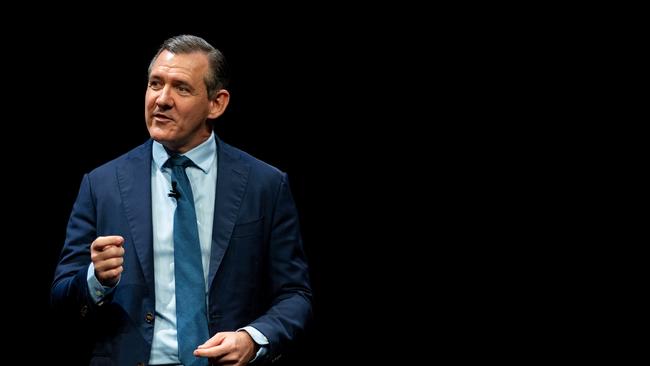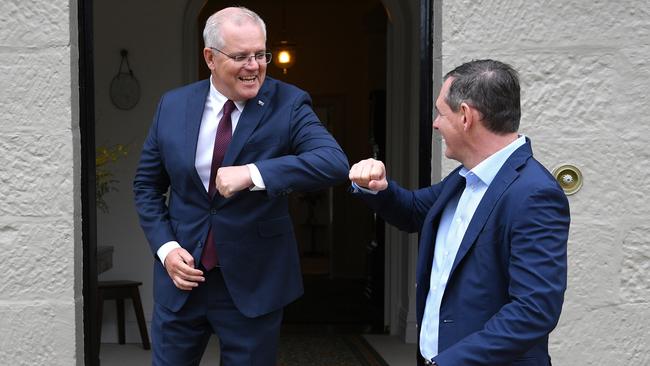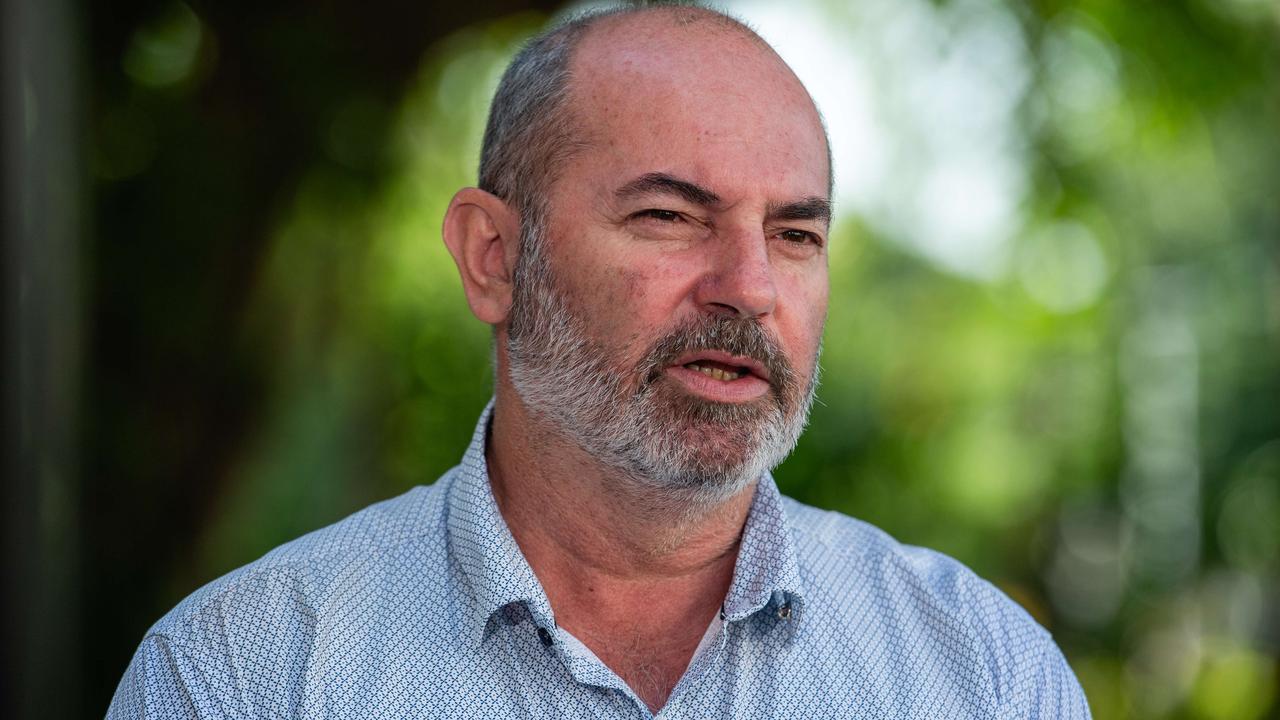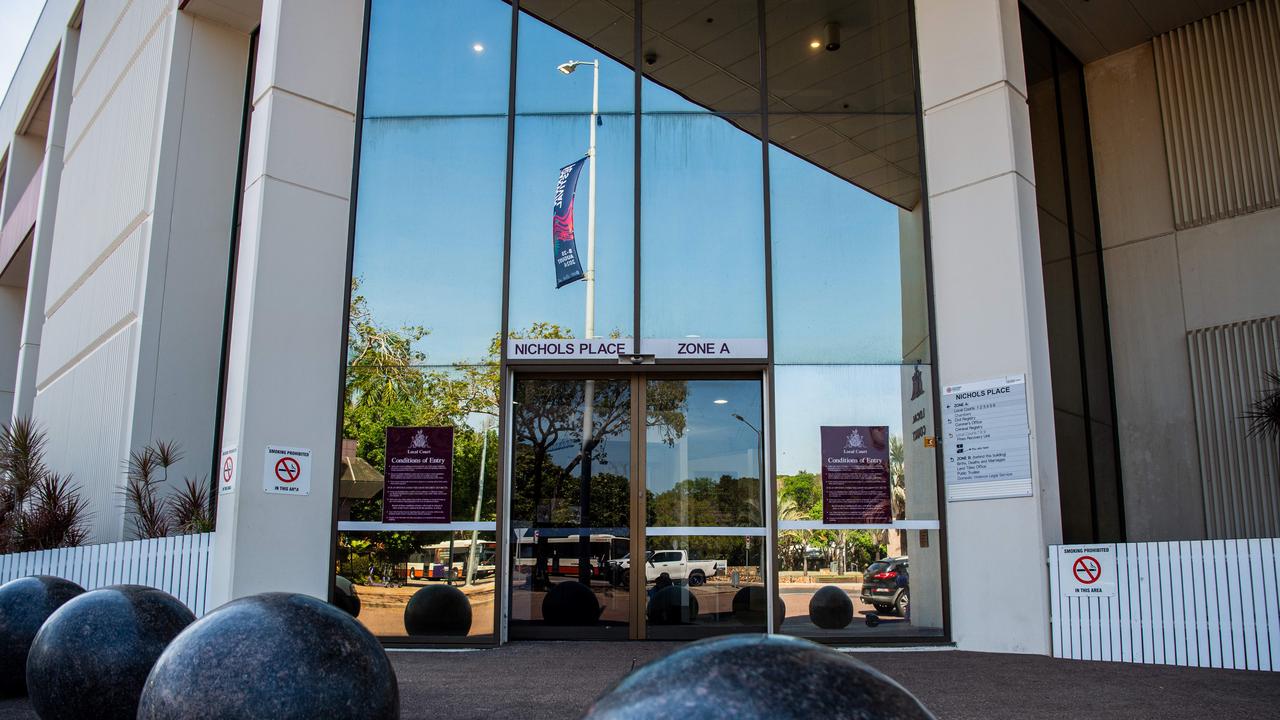NT Budget: Gunner declares time for fiscal ‘discipline’ is now as public service faces pay freeze
A FOUR-YEAR pay freeze for public servants, wage subsidies and stimulus measures for small business are part of the NT government’s $9.3bn financial plan to repair a budget and economy that was battered long before the coronavirus pandemic hit.

Politics
Don't miss out on the headlines from Politics. Followed categories will be added to My News.
A FOUR-YEAR pay freeze for public servants, wage subsidies to get Territorians back to work and stimulus measures for small business are part of the NT government’s $9.3bn financial plan to repair a budget and economy that was battered long before the coronavirus pandemic hit.
Trumpeting the NT as Australia’s “comeback capital”, Chief Minister Michael Gunner delivered a frugal budget with “no needless spendathon” as the government banks on a small business-sector led recovery.
MORE ON THE NT BUDGET:
Who are the Winners and who are the Losers out of NT Budget 2020/21
Chief Minister Michael Gunner’s first budget speech as Treasurer

In his first ever budget as Treasurer, Mr Gunner informed public servants they had two options — let the government control their wages or face job cuts.
The cost-saving measure involves giving public servants who have held their jobs for a year a $1000 annual bonus as the entire sector is hit with a four-year pay freeze.
Borne out of the Langoulant report, the policy is expected to save taxpayers an estimated $424m by mid-2025.
It has gone down like a lead balloon with the unions, which yesterday swiftly hit out at Mr Gunner for failing to consult them and accusing him of being CLP-like.
But the Chief Minister, who since the start of the pandemic has moved hand in glove with Scott Morrison, declared it was time for the NT to own its dreadful financial state and stop depending on GST bailouts.
“Let’s be really clear, we’ve got to do the hard work ourselves,” Mr Gunner said.
“We can’t expect there to be a white knight coming over the horizon to save us.
“We’ve got to control our expenditure, we must be disciplined.”
Budget forecasts reveal debt will balloon to $8.4bn this financial year, as the deficit doubles to hit $2.45bn.

By mid-2025 it will cost the Territory $1.4m a day to service the debt.
Apart from savings on public servant wages, the government will also slice its yearly repair and maintenance program budget to save a total of $30m by 2023.
There is no surplus on the cards this decade.
Despite ongoing political rhetoric about a “gas-led recovery”, royalties from onshore gas are not expected to flow into the NT’s coffers over the forward estimates as treasury boffins conservatively assume none will come out of the ground.
Overall royalties from mining, the largest slice of NT’s modest own-source revenue pie, will fall each year due to the pandemic-battered commodities market and hit just $250m in 2023/24, down 33 per cent from 2019/20.
The government will instead pin its hopes, and stimulus spending, on the small business sector.
Boosting the federal government’s JobMaker wage subsidy, Territory employers who take on people on the dole, regardless of age, will receive a $200-a-week subsidy under a $7.8m plan.
A bevy of other grants programs worth at least $20m will also be provided to small business to improve customer service, help with ongoing costs, “pivot” to the new economic environment, improve financial knowledge and solve supply chain issues.
The humble roadhouse will also have a part in the NT’s recovery according to Mr Gunner, as he made special mention of Dunmarra Wayside Inn’s Gary Frost, who delivered pizza and beer via plane to cattle stations in the pandemic.
A total of $4m has been set aside in the budget to spruce up roadhouses across the NT.
OFFER EXTENDED: Amazing NT News subscription offer: Read everything for $1
The government will also save $3m a year by making more gambling bookmakers pay a lower rate of tax.
All bookmakers, not just those who deal in racing, will pay 5 per cent tax on their profits, down from 10 per cent.
The maximum amount a bookmaker has to pay in tax will also double, from about $500,000 a year to $1m.


